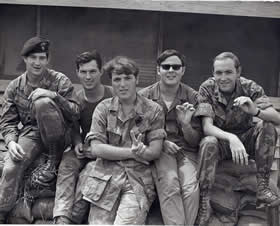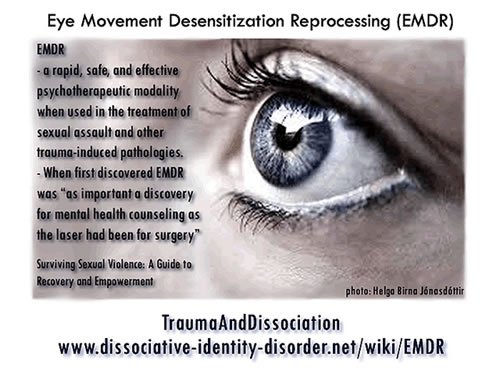James Fortune ~Vietnam
What is PTSD?
What is Post-Traumatic Stress Disorder? Well normal stress or even high levels of stress are pressures we all experience. We expect life to have its up and downs. We learn to adapt and become flexible, so that we can handle the normal day to day events that happen.
 But when the bizarre happens, 9-11 pretty much takes the cake in that aspect. You narrowly escape the building from the 30th floor, or you quickly duck into the restaurant right angles from the falling World Trade Center and it's dust, thinking it's over, and you survive.
But when the bizarre happens, 9-11 pretty much takes the cake in that aspect. You narrowly escape the building from the 30th floor, or you quickly duck into the restaurant right angles from the falling World Trade Center and it's dust, thinking it's over, and you survive.
Catastrophic events like this will forever be engrained into the very nerve fibers of millions of your nerve axons.
Military combat is in the top 5% of these catastrophic events, perhaps the top 1%. Witnessing your comrade lose his life while you are forced to go on and fight for your life and the other people in your platoon, just doesn't give one the time to adjust to the events, because you have to go on, or your life and others will also end.
 (Image courtesy ~ Rob Purvis - 75th Inf. Rangers K Company - 4th Infantry Division - Vietnam 1969
(Image courtesy ~ Rob Purvis - 75th Inf. Rangers K Company - 4th Infantry Division - Vietnam 1969Psychologists found that Vietnam War veterans that had more prolonged combat with sniping and air bombings were more prone to PTSD that soldiers subjected to combat with fewer weapons.
Symptoms of PTSD occur when they have been exposed to extreme trauma and their symptoms last at least a month and their social functioning suffers, their job abilities flounder. The person undergoing PTSD often relive their traumatic events many times. Some of the physiological effects are anxiety, restlessness, they can't concentrate, their memory suffers or they feel guilty, perhaps because their buddies were killed while sparing their lives.
 Courtesy Trauma And Dissociation www.dissociative-identity-disorder.net/wiki/EMDR
Courtesy Trauma And Dissociation www.dissociative-identity-disorder.net/wiki/EMDR Talking to a trained psychotherapist and EMDR (Eye Movement Desensitization and Reprocessing) Techniques often can help. Of course therapy for the War veteran should always be an expense that is free to ALL veterans.
